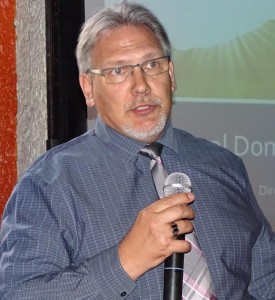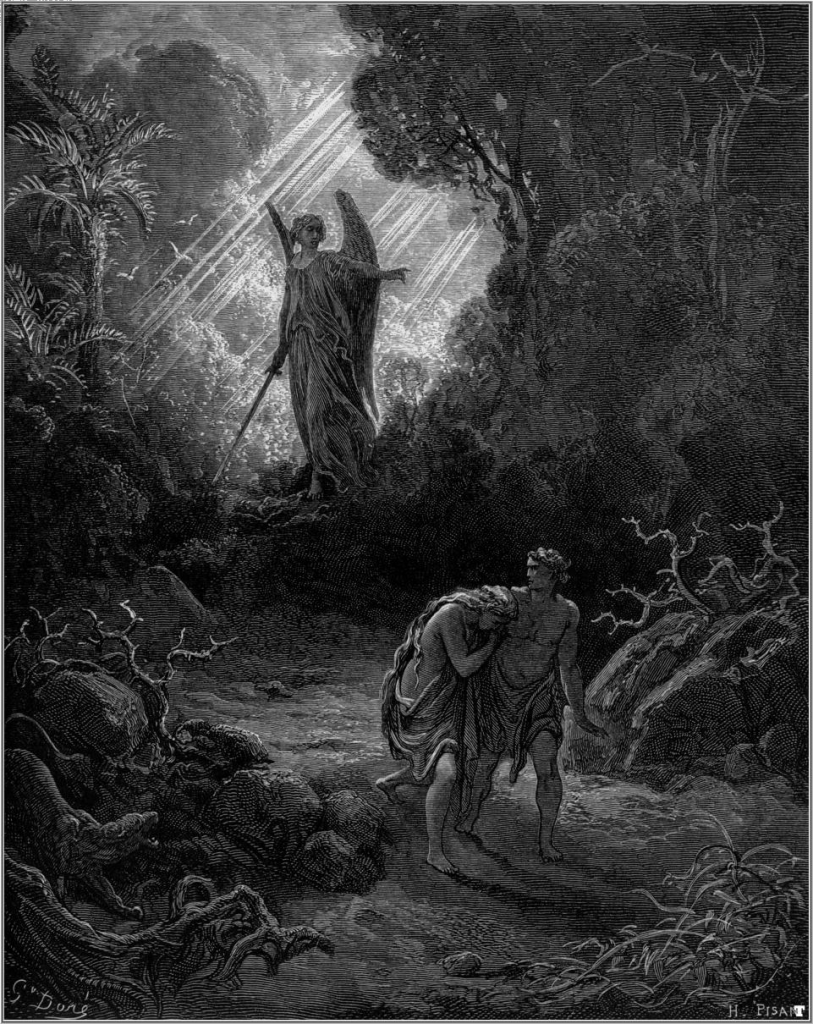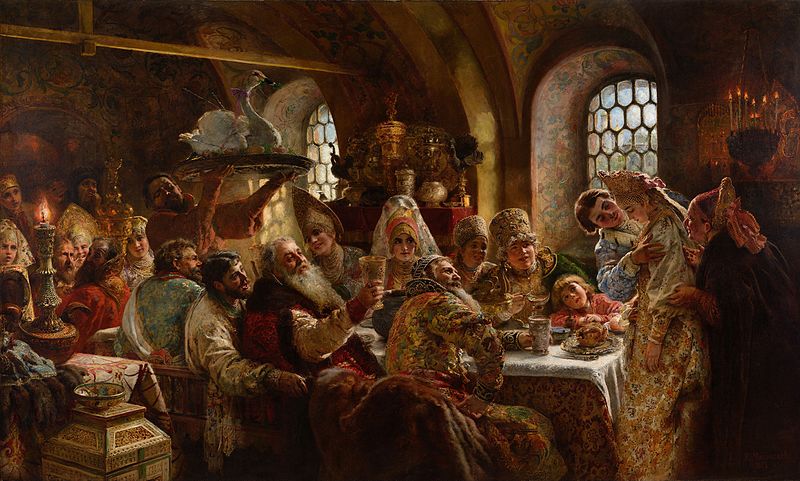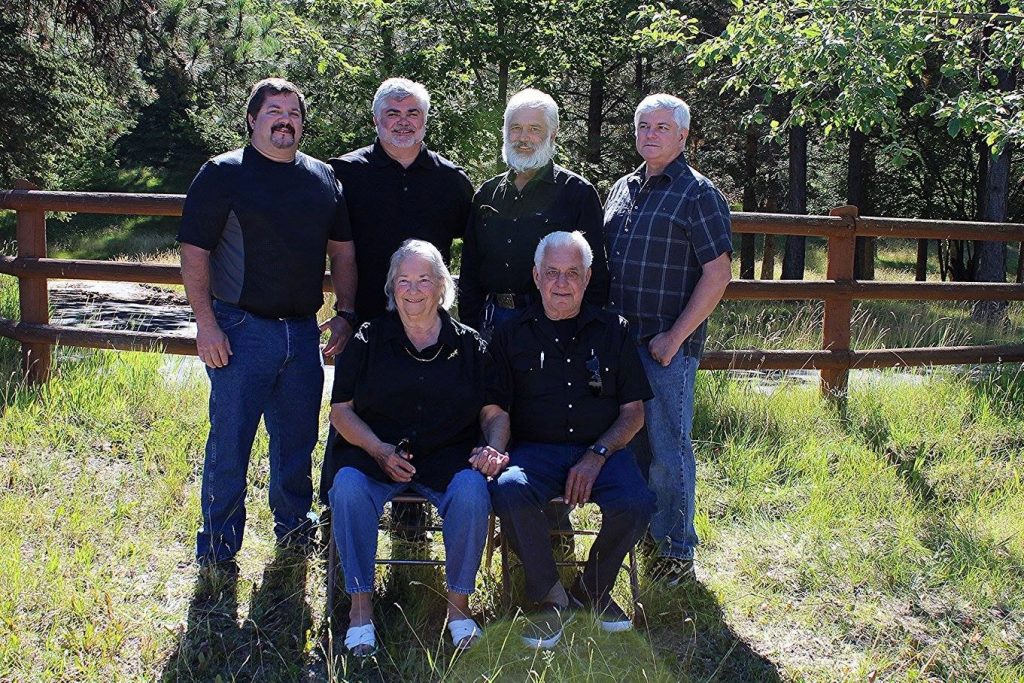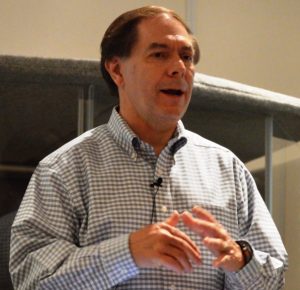
Here is part 4 of an essay from Gary Deddo on the nature of the church and its ministry. For other parts of the essay, click a number: 1, 2, 3, 4, 5, 6, 7, 8, 9, 10, 11, 12. We encourage you to add your thoughts and questions in the “comments” box at the end of each post to get a discussion going. To read the full essay in booklet form, click here. To read the related essay, “Clarifying Our Theological Vision,” click here.
A Brief Theology of the Church
(with a view to equipping the saints for the work of ministry)
by Dr. Gary Deddo
Part 4: The church as God’s creation under the Word
Last time we saw that the church (ekklesia) is “gathered together” and “called out” as the people of God. This time we’ll look at two additional ways Scripture defines the church.
1. Creature and creation of the Word of God (Living and written)
The church not only belongs to Jesus Christ, it’s called into being by the Word of God. The church is thus the result of an act of creation (or re-creation) that resonates with the Genesis account of God saying, “Let there be,” and “there was.” God calls out to the church by his Word and says, “Let there be a people for my name.” The church, then, is the creature and creation of the Word of God (both Living and written), from the Father, in the Holy Spirit. The church comes to exist by the grace of the triune God acting in time and space, and in flesh and blood on our behalf. The church’s life is thus lived out under and in relationship to the Living Word. It has no other Lord, no other Savior, no other Redeemer. It is formed and shaped by our belonging to Jesus Christ as we hear and respond to him as God’s Word to us. He tells us who he is and who we are in relationship to him as our Lord and Savior. He is the one who leads us to abundant life as we live out a relationship responding to him.
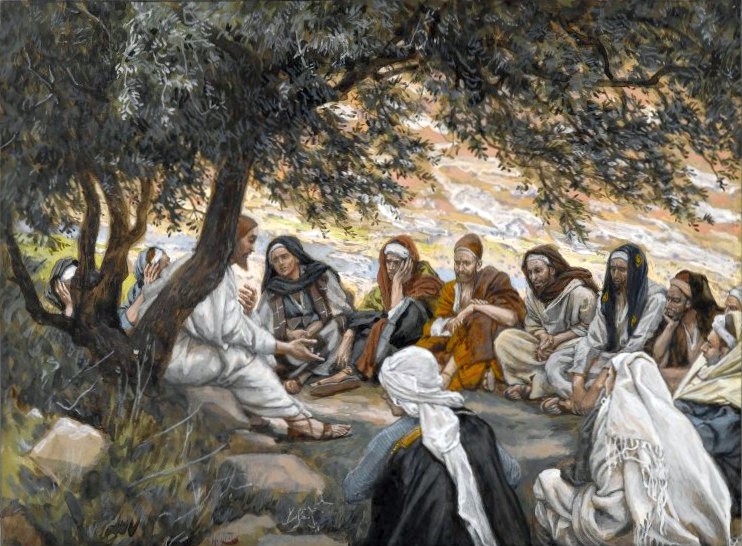
(public domain via Wikimedia Commons)
The church then, is drawn together and formed and transformed in Jesus as those called together to live under him and by means of him, the Living Word. Though absent bodily, the Living Word is able to call and commune with us through his written Word—the words of the apostles and prophets inspired, preserved and illuminated by the Spirit for us.
Jesus gave himself and his word to the apostles, and by the Spirit Jesus spoke uniquely, authoritatively and once-for-all through these men. He entrusted to them his word and sent them out by his Spirit to proclaim his gospel. Now, by the same Spirit of Christ, we are given ears to hear him speaking again in and through the apostolic words of Holy Scripture, which serve as the final authority for us in all things pertaining to the life of faith and practice.
The apostolic writings of the New Testament point relentlessly to the fact that their authors regard Jesus Christ as their cornerstone—their authority. The apostles do not speak for themselves or by themselves—they are under the orders, directions and directives of their Source and Origin, Jesus Christ. Consequently, what these Christ-appointed apostles convey is not just information, data and facts. They pass on to us their receptivity, attitudes, approach and authoritative regard for the gift of revelation and the meaning of the message given them. Their subjective orientation and receptivity to the meaning of the message is also authoritative. We cannot receive what they have given us by separating the information conveyed from their personal receptivity to it, deciding for ourselves, apart from them, its meaning and significance. We cannot divide asunder the appointed messengers from the message without distorting it. We trust the written Word of God because the Living Word entrusted the apostles to be his interpreters, conveying accurately the content of the message, and the receptivity appropriate to the message.
If we trust Jesus Christ, we will trust in these apostles to be Jesus’ interpreters. Refusing to do so would indicate a refusal to fully trust Jesus and the working of his Spirit. It would signal a calling into question of Christ’s judgment, decision and wisdom in entrusting this vital responsibility to the apostles. In our day, such a refusal would likely signal that we are making one or more of the following wrong assumptions:
- That Jesus misjudged in selecting the original apostles to be his appointed interpreters.
- That Jesus failed to take into account the historical, linguistic, cultural, social, intellectual and personal obstacles that we face in our day in being able to hear an authoritative word from Christ through the witness of his original apostles.
- That the ministry of the Holy Spirit in inspiring and preserving the written Word was ineffective.
As a result of these wrong assumptions, we make the even bigger mistake of becoming our own final authority—taking it upon ourselves, apart from the biblical authors, to determine what Jesus’ words mean. We then have no choice but to speculate about who God is and what he wants since we have predetermined in our own minds that God is not able to clearly and authoritatively communicate in our day anything normative for us and our salvation. Thus we can only resort to using our own methods trying to uncover the truth behind the biblical author’s own understanding. When we regard the written Word of God as unreliable and incapable of conveying to us God’s Word, even given the ministry of the Holy Spirit, then we rely on our own methods to sort through the data left behind in the biblical revelation. Taking this approach, we stand in judgment of the written Word, sifting through it to see if any of it ought to be believed, trusted and lived by, disregarding that this is exactly what the appointed biblical writers did.
There is also another, though opposite way, that some stand in judgment of the written Word. It involves seeking to hear and receive a Word from Jesus through the Spirit apart from a careful listening to the written Word. This approach results in an almost magical view of the Word where we think we hear God speaking through private revelations—subjective feelings, personal convictions, impressions—a sensing of what we feel God has said. Though looking for such subjective signals might include the reading of Scripture, that reading typically is rather casual, readily permitting us to take what the Word says out of context, and even thinking our own personal thoughts and opinions concerning its meaning are inspired by the Spirit. This approach indicates a distrust in the wisdom and judgment of Jesus, and in the capability of the Spirit to work in such a way that we are able to hear and receive a word from God spoken in and through the written Word of God, not apart from it, or apart from the way it was received by the apostles.

(public domain via Wikimedia Commons)
In approaching the written Word of God, we must be careful not to separate the Son of God from the Holy Spirit, or the Word of God from the Spirit of God. The members of the Trinity are not separated in their being or in their doing. Instead, they are perfectly coordinated, working together. They share completely the one will and purpose of God, which is to make God known and to draw us into right relationship with himself.
Perfectly capable of taking into account the limits of human language, the problems of transmission and translation and the socio-cultural context, the Father, Son and Spirit enable us to hear and respond to Christ the Living Word and cornerstone, and to those Christ appointed to author the church’s foundation, the written Word of God. As leaders, we are called to serve the church by faithfully teaching and explaining to its members the written Word, which by the ministry of the Holy Spirit, puts us in contact with the Living Word of God. In this way, we facilitate the church living as the creature and creation of the Word of God, Living and so written.
2. Church under the Word of God (Living and written)
With Jesus at its center, shedding light on it all, the written Word of God is our authoritative source for hearing and living under the lordship of the incarnate Living Word of God as his Body the church. Although absent in body, by the presence of his Holy Spirit, we, the church, are enabled to hear Christ speak to us. He does so in and through the biblical words in such a way that we hear those words as a Word from him, not merely words from his apostles. Note these comments from the apostle Paul:
We also thank God continually because, when you received the word of God, which you heard from us, you accepted it not as a human word, but as it actually is, the word of God, which is indeed at work in you who believe. (1 Thessalonians 2:13)
I want you to know, brothers and sisters, that the gospel I preached is not of human origin. I did not receive it from any man, nor was I taught it; rather, I received it by revelation from Jesus Christ. (Galatians 1:11-12)
Through Scripture, we receive the Word in the same way the apostles authoritatively first received it—being moved (illuminated) by the same Spirit. We receive this Word in a spirit of humility—a readiness to respond in faith, hope and love to the Speaker of this Word. Like Jesus’ mother Mary, we both receive the Word and are responsive to it. We have “ears to hear” what he is saying, as noted by Paul: “Faith comes from hearing, and hearing through the word of Christ” (Romans 10:17 ESV). We stand alongside the apostles to receive from them the word of God, receiving it in the same way they did as the word of the Living Word himself.
We then submit to the authority of that apostolic revelation, knowing it came to us by those who had been assigned by Jesus Christ. Submitting to biblical authority is about more than just analyzing its words, ideas, concepts and directives. We submit to the Living Word who speaks to us in the written Word by accepting, revering and mirroring the receptivity of the apostles and their submission to Christ and his Word to them. By the gift of the Spirit, we listen with the same ears to hear what those apostles had been given. Taking a purely “objective” or neutral stance towards the Word, which involves holding back on being receptive to it until after we’ve analyzed and judged it, amounts to a rejection that it truly is the Word of God, both written and Living. Receiving and benefitting from the objective content of the revelation given to the apostles preserved in Scripture, requires sharing in the same subjective orientation to the content of the message that those apostles had, namely faith in the One who is speaking. Hearing the objective word of God requires the working of the Spirit in our subjectivities so that we have the freedom to welcome and receive the Word of God. In short, we read and study Scripture by faith in the One whose Scripture it is.
Summary and implications
In the life and practice of the early church we find an openness toward and trust in the Word, both Living and written. When called together by the proclamation of the gospel, they gathered daily and weekly. What did they do? Note this:
Those who accepted his message were baptized, and about three thousand were added to their number that day [Pentecost]. They devoted themselves to the apostles’ teaching and to fellowship, to the breaking of bread and to prayer. (Acts 2:41-42)
As creature and creation of the Word, in the Spirit, the church’s worship and fellowship, along with its ministry and leadership, were generated and enlivened by the written Word, which is the Word of Jesus Christ, the Living Word. Did you notice that the church “accepted” the message then “devoted themselves” to the teaching? Both the objective element of the message and the subjective element of personal receptivity or trust were in operation—by the grace of the working of the Spirit of Jesus among them. In our day, we recognize the written Word as belonging to the Living Word when we receive it and listen to it carefully in the same way as they did—led by the Spirit, under the direction of the apostles. In this way, the church, along with the apostles, bears witness to Jesus Christ and his Word, the cornerstone.
Here are two primary implications of the church being Christ’s Body and being a creature and creation of his Word:
a) The Church is Christ’s Body not ours. He remains Head of his Body still today. He remains Lord over his Body.
The church does not belong to us. We remain our Lord’s Body and he remains its one and only Head. Body and Head are inseparably connected, but ordered as Head to the Body. Jesus remains Lord over his Body, the church, precisely because the church is his Body. He has not handed over his leadership/headship to us. The church does not have another head and needs no other earthly mediator. Jesus is still our great Mediator bearing our humanity, and making intercession for us. He, the Living Word, has provided us a witness to himself and to his Holy Spirit by means of the written Word. Note Paul’s comment: “There is one God, one mediator also between God and men, himself man, Christ Jesus” (1 Timothy 2:5 ASV).
Thus we understand that the church does not create or sustain (perpetuate) itself. We are not in control of the church—it belongs to Christ. It is his Body, and belongs to no one else. It follows that there is only one ministry in his church, and that is Jesus Christ’s ministry, not ours. He does not need us to stand in for him! Instead, he wants us to participate with him, in his ongoing ministry. We are guided in that participation by his written Word, which he has provided for us with his Spirit. By the Word and Spirit (always together, never separate) the church has its life and leadership. The church and its ministry belong to Christ as its Living Head who gives life to his Body by his Word. The church participates in his ongoing ministry in communion with the Living Word as addressed by the written Word, through which he calls the church together. Thus the church and Jesus Christ, though joined as a Body to its Head, are and remain distinct, yet inseparable.
b) Those leading in Christ’s ministry lead first by following him, by being under him and his written Word, as interpreted in the light of who he is as the Living Word of God.
Church leaders are to lead by living under Christ’s Word, modeling and teaching others to do so as well. Leaders are thus first followers of Christ, according to his Word. Knowing Christ according to his Word is a leader’s most important task. One who leads in Christ’s ministry must know the Living Word through his written Word.
The primary ministry of a leader is the ministry of the Word, Living and written. The primary ministry of the church, as a creature and creation of the Word, is to know and live in fellowship with the Living Word, responding to his written Word as did the apostles who were the human authors of that written Word. All those who serve in the church, in one way or another, are called and appointed to lead in Christ’s Body by first following Christ according to his Word.
A leader in the church never serves the church on his or her own, but in fellowship and communion with others who have gone before—those known to be faithful followers of Christ according to his Word. The church, with all its leaders, aims to be faithful to Christ and therefore to his Word.
Leaders in the Body of Christ, who know Christ according to his Word, gather others primarily by a proclamation concerning who Christ is according to his Word. Christ’s Word, and who he is as expressed in his Word, is the drawing power. The proclamation of the good news (the gospel) is what calls together the church, the called-out ones. Thus church leaders seek not to draw attention to themselves, but to Christ. They bring not their own word, but seek to pass on to others Christ and his Word. Leaders (including pastors) are not the center of the church—that role is reserved for Christ, who is received in the Spirit, with and through his Word. The apostle Paul put it this way: “What we preach is not ourselves, but Jesus Christ as Lord, and ourselves as your servants for Jesus’ sake” (2 Corinthians 4:5).
The key to leadership in the church in all ages, including ours, is to know and respond to Christ according to his Word, received in his Spirit. This is what the apostles did, leading to the written Word. In our day, as we hear and respond by the Spirit, we are able to participate in what Jesus, by the Spirit, and through the church, is doing in our world.




